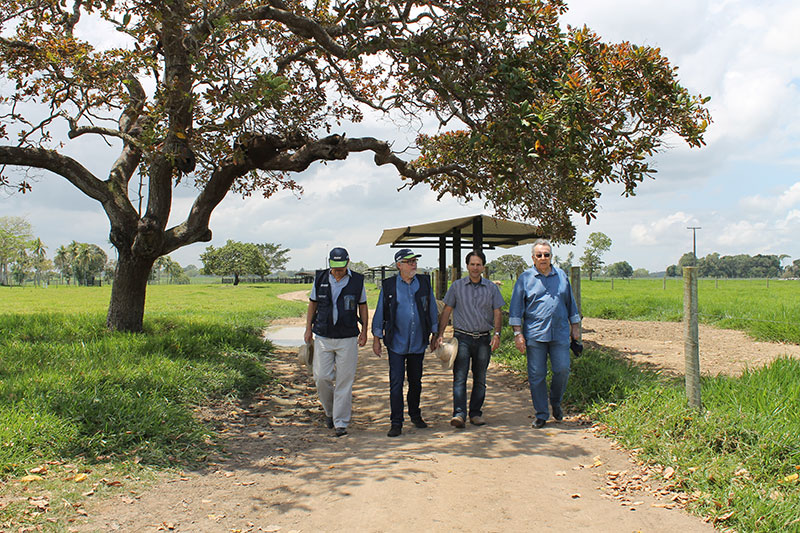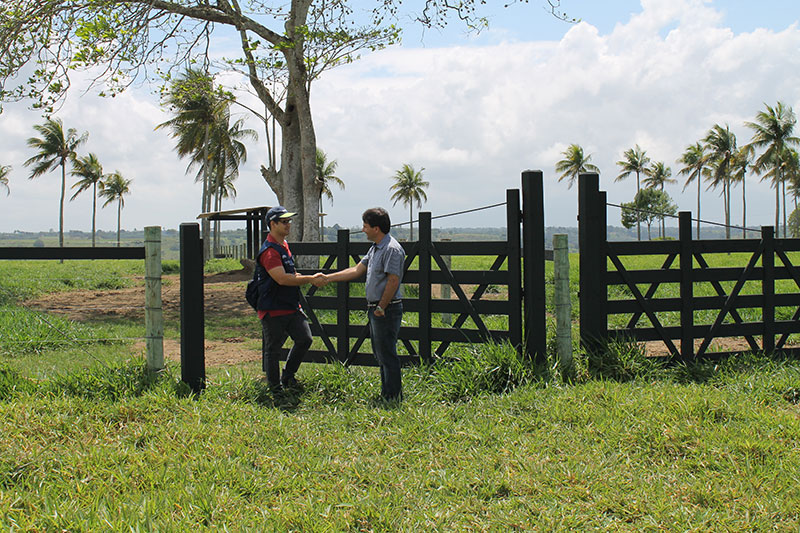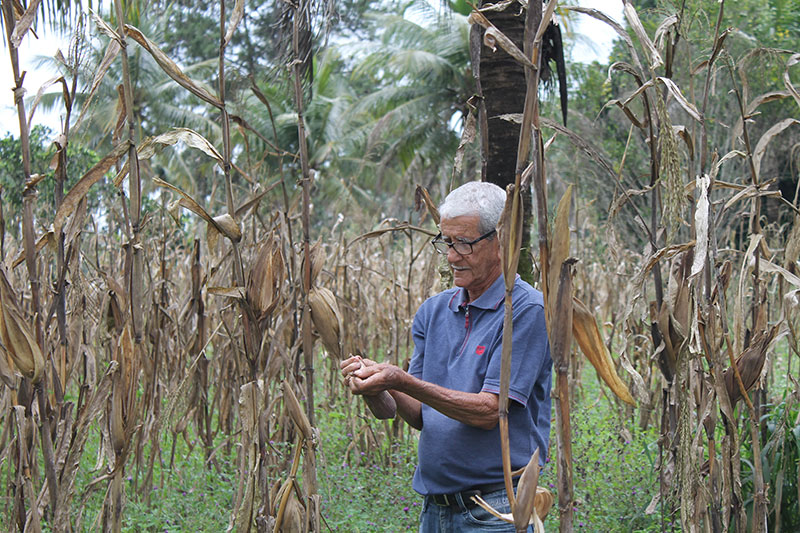President of IBGE highlights partnerships during data collection of Census of Agriculture in Bahia
October 09, 2017 04h19 PM | Last Updated: October 10, 2017 04h09 PM
"Knowledge is one of the biggest treasures of a country. Censuses are not expenditures, but rather an investment", stated Roberto Olinto Ramos, President of the IBGE, in the beginning of the data collection of the 2017 Census of Agriculture in Bahia. The survey began on October 2 and about 47,900 establishments were visited during the first week all over the country. 5.3 million agricultural establishments in the 5,570 Brazilian municipalities will be visited up to February 2018.
Last Friday (October 6), Olinto and João Martins, President of the Brazilian Confederation of Agriculture and Livestock - CNA and of the Federation of Agriculture and Livestock of Bahia - FAEB, checked on-site the first interview of the Census of Agriculture in the municipality of Santo Amaro, in the Bahia Recôncavo. Artur Ferreira Filho, head of the IBGE in Bahia, also participated in the visit. The CNA is one of the IBGE partners in the dissemination of the importance of the census operation for this sector.

From left to right, the head of the IBGE in Bahia, Artur Ferreira Filho, the President of the IBGE, Roberto Olinto Ramos,
cattleman Severino Vidal, and the President of the CNA/FAEB, João Martins, go through the cattle farm
"The implementation of a Census depends on two key issues: the first one is the collaboration of the informant, of paramount importance. The second one is the work of a group of partners in disseminating the operation and convincing the informants on the importance and utility of what we are about to investigate. Like the CNA, these partners have been helping us a lot and integrating us into a big network in Brazil", stated the President of the IBGE.
Showing the reality of rural Brazil
More than 760 thousand agricultural establishments will be visited in Bahia, the most rural state in Brazil. Among them, the first establishment enumerated in Santo Amaro, a 500-hectare estate dedicated to livestock.

Severino hosts IBGE enumerator in his farm, to help to portray rural Brazil
"We breed nelore [cattle] here; and the meat is delivered to Salvador", says Severino Vidal, rural producer. "We open the gates and we are available to provide the information for this rural Brazil! We have to show the reality of the producers, as agriculture is the driving force of the GDP today", highlighted him.
João Martins, President of the CNA and FAEB, reinforced the importance of the results of the Census of Agriculture for the sector: "The IBGE will unveil our reality, and we will focus on the problems that will be pointed out and, mainly, on the purpose of each region."
The need to detail and update the information on the countryside was also highlighted by the President of the IBGE: "Statistically speaking, we have annual surveys on agriculture, but we need more and more to see the details, and not only the whole thing", complemented him.
Many changes in ten years
According to Paulo Silva, President of the local rural union, the purpose of Santo Amaro, for example, has been changing over time: "Historically, Santo Amaro lived from the sugarcane monoculture. Today, we have a strong livestock, a very strong agriculture based on cacao, cassava and bananas."
Living in a 70-hectare farm in Santo Antônio, "seu" Toninho, as 81-year old farmer Antônio Borges prefers to be called, is one of those in charge of changing the profile of this region. "Here we produce coconut, oranges, cassava and corn, almost everything organic. I live off the land and I would like to pass it on to my kids, hoping that they will not abandon it, because here we have a better life."

"Seu" Toninho, 81, harvests organic corn in his farm in Santo Amaro (BA)
Severino is also an example of how important is to update the picture of the Brazilian agriculture. When the last Census of Agriculture was carried out ten years ago, he had not purchased the cattle farm and had never thought of becoming a cattleman. Today he envisions living off the revenue generated by his establishment.
Text: Rita Martins and Mariana Viveiros
Photograph: Rita Martins

